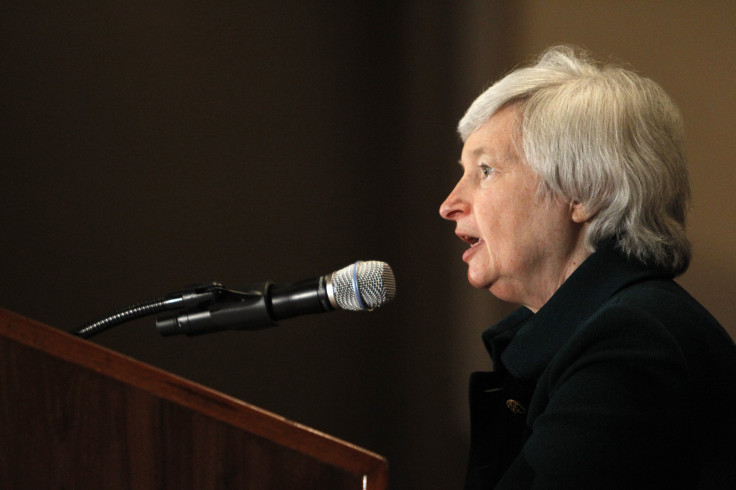Janet Yellen Senate Banking Committee Hearing: What To Expect

Thursday is the day. Janet Yellen, who would be the first woman to lead the U.S. Federal Reserve, appears likely to be confirmed but could face some grilling, economists and analysts say.
At 10 a.m. EST on Thursday, Nov. 14, Yellen will testify before the Senate Banking Committee as President Barack Obama’s nominee to replace Ben Bernanke as chair of the Federal Reserve Board. If the Banking Committee votes to approve Yellen’s nomination, it will move to the floor of the Senate for confirmation.
“This testimony is likely to be her only public statement before she takes over as the new leader of the Federal Reserve System,” Nomura Securities economist Lewis Alexander said in a note to clients.
Yellen will start with a prepared statement and then answer questions from members of the Banking committee.
In his latest “Thoughts from the Frontline” newsletter, economist John Mauldin offered a glimpse of what Yellen would be asked at her hearing Thursday.
There will be the usual softball questions, for example, “Do you think high unemployment is a problem in the U.S. and if so what do you intend to do about it?” Or the always popular question, "What is the basis under which you would continue to hold interest rates at their current low level?"
In her prepared remarks and her answers to questions, Alexander expects Yellen to argue, in very general terms, that the current state of the economy and labor markets, and the Fed’s dual mandate from Congress, demand that the central bank continue to pursue very accommodative monetary policy. But she will probably avoid detailed answers to specific questions about policy.
Her most prominent critics on monetary policy may seek to suggest that Fed policy has been too aggressive. But it seems unlikely that Yellen will say anything definitive about potential changes to the Fed’s asset purchases, or potential changes in forward guidance.
When she takes the helm, Yellen will have to help find consensus within the Federal Open Market Committee; therefore, she is unlikely to advocate a specific course of action or present views that are outside of the current FOMC consensus on monetary policy.
“A substantial part of the questioning is likely to focus on regulatory issues, rather than monetary policy. The questions and Yellen’s answers are not likely to seem supportive for risk-taking generally,” Alexander said.
“The overall impression of her testimony is unlikely to match her very dovish reputation,” Alexander added. “That said, markets have already reacted, but it is not obvious that markets will react negatively to her testimony.”
In January 2010, Bernanke was confirmed by the Senate 70-30, which was the highest number of “no” votes ever received by a Fed chairman during the confirmation process. Paul Volcker's confirmation by a vote of 84-16 in 1983 had been the prior weakest showing.
© Copyright IBTimes 2024. All rights reserved.





















